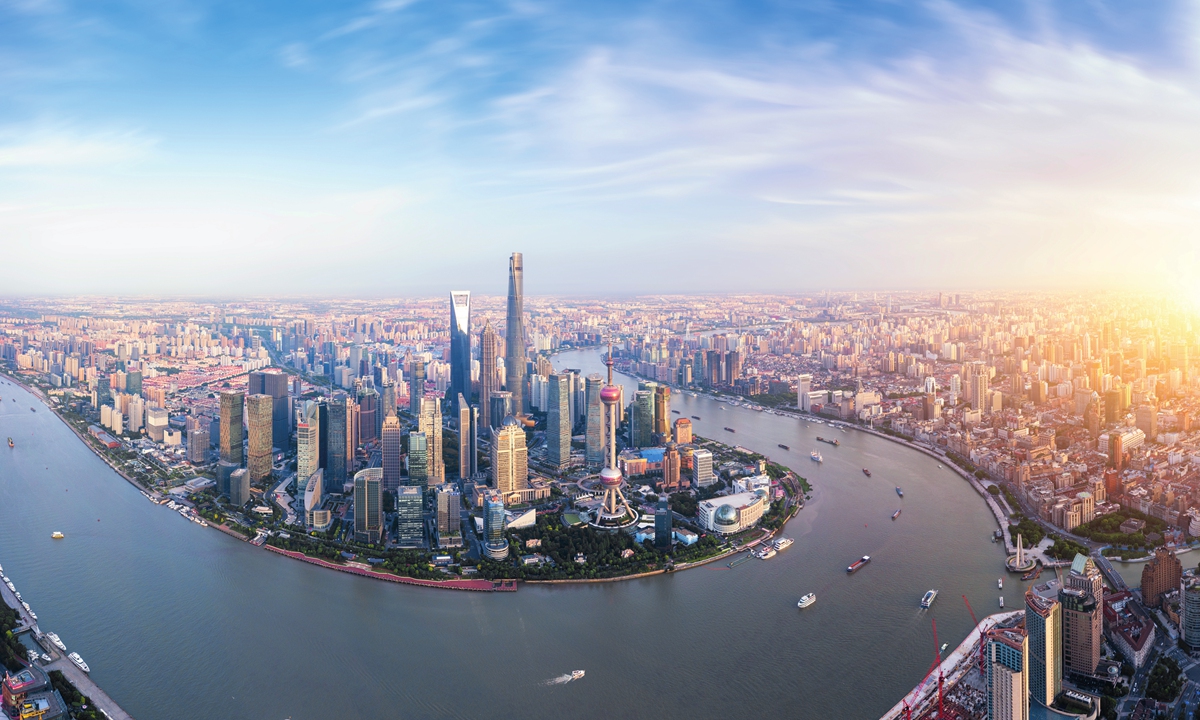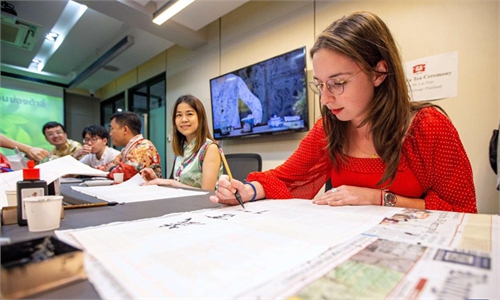

A view of Shanghai Photo: VCG
Editor's Note:
This week, China kicked off the two sessions, one of the most important political gatherings annually. The event offers an important window for the outside world to understand China's development, and where the world's second-largest economy is headed and top policy priorities in 2024.
What are the world's general expectations of the two sessions? And how do foreign economists and think tanks view China's growth potential? Recently, Global Times reporter Li Xuanmin (GT) conducted an interview with Wirun Phichaiwongphakdee (Wirun), director of the Thailand-China Research Center of the Belt and Road Initiative and a researcher at the Thailand-China Strategic Research Center at the National Research Institute of Thailand.
GT: What are your expectations of the two sessions?
Wirun: I am eagerly looking forward to everything about China's economy at the two sessions, especially the focus and direction of China's economic development in 2024. I hope to see clear economic policies from China, which will also establish a direction for the economic and trade cooperation between Asia, particularly Southeast Asian countries, and China.
The timing of the two sessions is very important. It is being held at a time when the global economy is currently facing the impacts of the post-pandemic era, with Western trade protectionism, technological barriers, and turbulent regional situations all posing challenges to global economic growth. Since most Asian countries have long been export-oriented, so a recession in the Western economy would have a certain level of impact on all Asian countries. Against the backdrop, it is important to strengthen economic ties among all Asian economies.
GT: What is the significance of the two sessions to the world? And what kind of message will they send to global observers?
Wirun: Currently, the world has come to a threshold period for a leap in productivity, and the development of artificial intelligence (AI) will lead humanity into a new stage. China is one of the first countries to elevate innovation to the level of national development, stressing that innovation is the key to grasping and leading the era.
China also put forward the concept of "new quality productive forces," which is vital to economic growth and a development paradigm that other countries could draw upon.
It is evident that the era of competition for resources based on zero-sum thinking has passed, and that interconnectivity and mutual beneficial cooperation represents the mainstream of world development.
US Secretary of State Antony Blinken recently used an American slang to sum up US thinking that "if you're not at the table in the international system, you're going to be on the menu," when responding to a moderator's question concerning that "the US-China tensions are leading to greater fragmentation." His answer, which has received a tsunami of criticism, exemplifies the West's blatant zero-sum thinking.
It is believed that China's wisdom and peaceful solution to global issues would provide insights to the world. China's strong objection to the Cold War mentality, advocacy for peaceful coexistence, mutual benefit, and the ideas of building a community with shared future, are all manifested in China's diplomatic practices. China's efforts in seeking peaceful resolutions to the Russia-Ukraine conflict and the Israel-Palestine conflict are well recognized.
GT: From your perspective, what will be the focal point of China's economic work in 2024?
Wirun: China's economic work focus in 2024 is likely to concentrate on expanding domestic demand, shoring up exports, as well as addressing local government debt.
It should be recognized that the relatively high level of local government debt is an inevitable phase in the process of industrialization and urbanization. And I believe that with the Chinese government's efficient macro-control capabilities, the authorities will be able to guide local governments to gradual shift away from reliance on real estate income.
Furthermore, efforts should be made to boost economic vitality, restore investor confidence, and promote investment mechanisms in the innovation sector. If China can maintain a moderate GDP growth during its economic transitioning period in 2024, it would be a significant achievement.
I also suggest China establish a smoother and closer economic cycle with the Association of Southeast Asian Nations (ASEAN). In fact, Thailand, Malaysia, and Indonesia are huge consumer markets, and the resource endowments of these countries are complementary to China. The implementation of visa-free policies between China and many ASEAN members is also an important step in this direction.
GT: How do you see China's economic outlook this year? And what role do you expect it to play in the global development?
Wirun: As the world's second-largest economy, China has a pivotal impact on the global economy. China's innovation in the field of AI will contribute significantly to the leap in human productivity.
China has been gradually opening up its financial markets, including banking and insurance, which I believe will be the next hotspot for attracting foreign investment. This opening-up not only demonstrates China's commitment to integrating into the global economic system but also offers tremendous opportunities for international investors looking to enter the vast and growing Chinese market.



